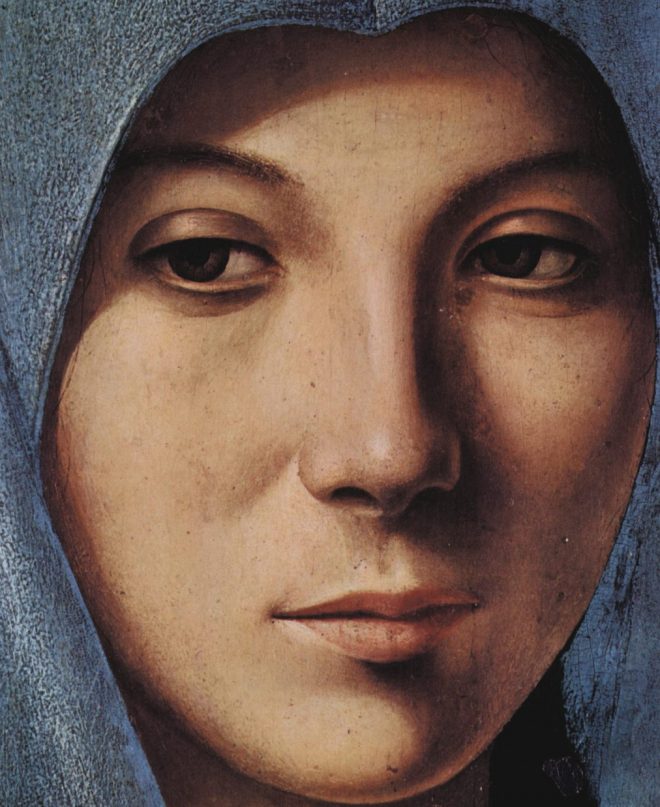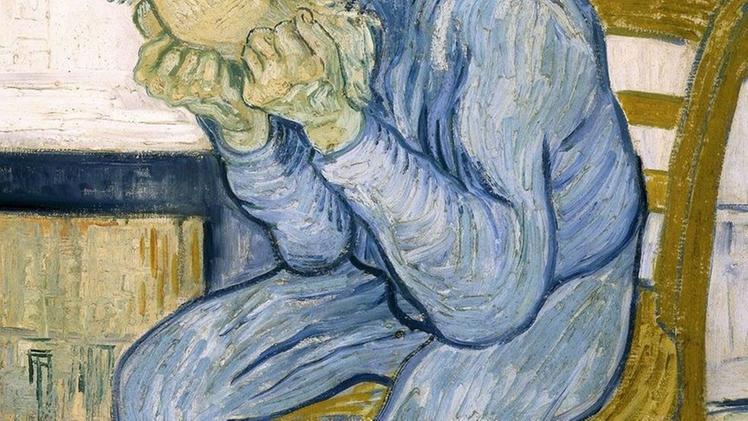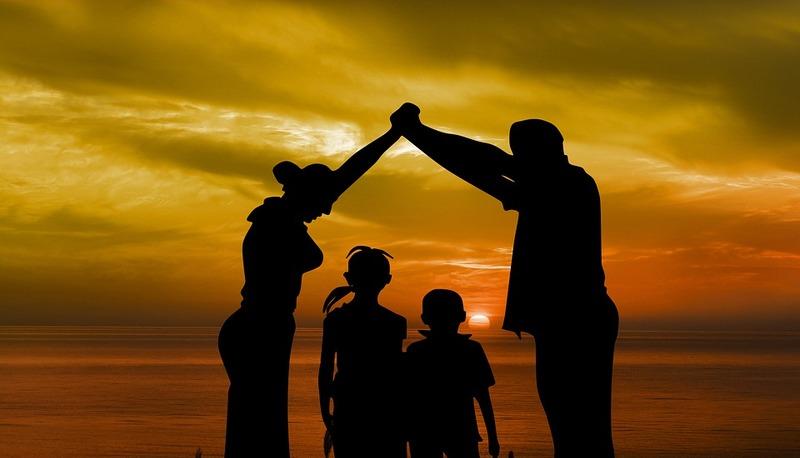Self and others: From Identity to Relation
Original Title: Io e gli altri. Dall’identità alla relazione, Edusc, Roma 2010. Antonio Malo
Pascal said that “all the unhappiness of men arises from one single fact
that they cannot stay quietly in their own chamber” (Pensées, n.
139). Pascal’s tough judgment is not simply a tirade against activism, but
a defence of the need to study, rest and meditate, in his typical
paradoxical style.
Allow me to take a slightly intimate digression to introduce the book
review of Self and Others: From Identity to Relation written by
the professor of Philosophical Anthropology at the University of Santa
Croce, Antonio Malo. My personal circumstances during this summer have
compelled me to verify the sentence of the French philosopher and
mathematician, and thus confront this challenging but illuminating book.
Once the forced time of rest taken due to health problems had concluded,
and while I spent a few days in the country with my mother – 84 years old
and a widow as of three years-, I told her in a moment of intimacy to make
her happy: “Mom, I read a book that made me realize that neither I nor my
siblings- and said among us, each one of the other four love her a lot and
know how to manifest it- can replace the emptiness that dad left.” It was
something obvious, and almost banal, but “rediscovered” thanks to reading
this book. My mother immediately responded, as one who naturally learned
the essential anthropology leading a loving life: “Well of course- and how
else could it be? He [my father] is I, and I [my mother] am he.” Afterwards, while she continued her usual domestic duties as
ordinary as always, she showed me yet again the photographs, letters, and
memories of her children.
The wisdom of my mother has summarized in a fleeting moment the bulk of
Malo’s book, where the author offers a very modern, at the same time
antique, anthropological analysis of the structure of the human person.
Sexual identity crisis
In my opinion, the novelty of this successful and mature attempt to rethink
personal identity is precisely the discovery of the constitutive character
of relation, and relationships. Some relations are given
or imposed by biology (filiations, fraternity, paternity and maternity)
others are natural or spontaneous (eros and love), while others
are free (friendship). But all are “available” to be integrated and
fulfilled in order to make us what we are called to be but are not yet.
This is because we are corporeal beings and thus temporal beings. Each one
of us is, without a doubt, an “individual substance of a rational nature,”
but we are also that which we do and furthermore, we are also that
which others have left us by our relationships with them. We are therefore
also our “biography.”
As the author says, even if “identity” and “relation” are apparently
abstract concepts, they have to do with “a concrete and singular reality
such as human corporality. Above all, they have to do with that which is
conditioned by such corporality: one’s self, the very source of all human
acts, which reveals one’s own personal uniqueness. This study aims to
demonstrate the relationship among these realities because- and this is in
the central thesis of the book- the origin and destiny of human liberty
finds itself in relation with others” (p. 7).
The book is divided into five chapters. The first examines the current
crisis of sexual identity (the question of gender) at its roots: identity
crisis and the challenges it presents. Through a brief historical study of
the crisis, Malo shows the importance of the sexual differentiation between
man and woman, not only for the formation of one’s personal identity, but
also and especially in interpersonal, family and social relationships.
When going to the bottom of the crisis, in the second and third chapters,
through a critical dialogue with French deconstructionism (especially
Derrida and Foucault) and typical feminism, the author shows how
deconstructionism has given a strong ideological support to the demands of
feminism, converting it, to a large extent, into an ideology of fragmented
individualism, disconnected experience, of the moment, and the dissolution
of the self. Malo proposes a new focus in understanding identity and
relationship: “sexual individual, self, and personality are studied through
their reflection in the gift, because it is capable of assuming different
levels of identity and their differences.” These two chapters, certainly
the most challenging, boldly propose a metaphysical anthropology of the
person that permits an understanding of both the human person and its
nature. This metaphysical anthropology assumes the acquisitions of
classical philosophy, and responds to challenges posed by both modern
claims, such as the equation of identity to self-consciousness, and
late-modern ones, such as the denial of identity itself and substitution of
differences.
The fourth chapter studies the family as transcendent union of differences.
It examines the different types of relationships within the family and
their influence on personal identity. “The concept of generativity
(generation, education or personal growth) is the key to explaining the
meaning of these family relationships” (p. 19). Particular attention ought
to be given to the chapter about the role of the family in the development
of the anthropological roots of sociability or virtues of the
social “fabric” (piety, observance, honour, obedience, truthfulness,
kindness, generosity, gratitude and vindication).
The fifth chapter examines friendship as the most personal expression of
human relationships and therefore, the ideal model and paradigm for all
relationships. Because it is the most personal of all relationships, it is
also the most potentially humanizing. This is why, if its characteristics
are present in relationships, whether they are given or imposed, such
relationships become perfective and not destructive of the person.
The structure of identity: person, personality, and I
It is not easy to summarize in a few lines the essence of Malo’s book. I
will do it taking his concluding words that present the general guides for
his anthropology of human relation. The author sustains the existence of a
threefold structure of human love, made from need, self-dominion, and
donation, which correspond to the threefold aspect of the human person (the
personal being, self and personality).
“Each type of human love is born under the form of need with respect to the
other, and when it matures, it opens up to the virtues that allow for
donation. The end of this donation is to render the other capable of
self-possession so that he may be able to give himself at his turn (…)
Dependence, virtue, and friendship help people to enter into a
relationship, and through this, to grow and mature as persons. This
structure of dependency-virtue-friendship that we can encounter at the
origin of personal identity, is also found in all types of love: human love
(paternal-maternal, filial, fraternal) and supernatural love. Each one of
these types of love begins as a need that will become a donation” (p. 328).
Malo reminds his readers that one ought not to confuse donation with
feelings, with the will of union, of power, etc: “The difference between
the will of power and donation is derived from the fact that the first
tends to impose itself in a clear way (oppressing the other) or in a masked
way (forcing the other to feel guilty for his inadequacy), while the second
gives to the other the power to give himself. Thus, donation is
characterized by three elements: respect for the person, independence, and
communication” (p. 358). Obviously, this is supposing an eternally faithful
and not needy donation as the foundation of human love, which is not
auto-sufficient, that is an original Love.
The correspondence of this threefold structure of love with the structure
of the person is almost a mirror reflection: personal being, self and
personality are all three pillars of the concrete and singular
person. “In receiving one’s being, the human person begins to be such,
radically and forever. Being, in so far as it is received, is possessed by
the person. The reception of one’s being- or its possession- is the human
essence, which is the beginning of loving. As a consequence, loving belongs
to essence. Unlike a being that- though originating in time- is perfect,
love has need of time in order to mature (…) Thus, within the personal
essence, one can distinguish between that which is natural (the power to
love) and that which is personal (the actualization that is always
relational, in so far as it implies the actualization of the others)”
(p.351). That is why without self-dominion, that is the ethical perfection
of the self, there cannot be donation. But neither virtue nor
self-dominion is an end in itself, as it is proposed by the Stoic ideal and
by ethical voluntarism. “Only when one opens himself (the self) to
the otherness without trying to engulf him, the self begins to be
personality. In the personality, the self is radically open to the
other. The self does not possess itself anymore except to
communicate himself. With the self-donation, the person fulfils his “ought”
(…) Human essence, therefore, is made up of otherness, not only as an
object of his own intentionality and symmetry, but also as a subject of
gratitude and communion. In this way, personality is nothing other than the
communion of one’s own self with the other: of himself, of what he
possesses, of the love for the other. To think of relationship not only in
the context of dependence, but above all in the context of communion, means
to think of it as a constitutive factor of the personal essence, as the end
of the person and the very relationship” (p. 353-354).
A proposal for a cure
Malo’s book is a diagnosis and a proposal for healing a sick and tired
culture where people, programmed to be happy- they cannot help wanting to
be happy- try in vain to become happy against the “program”. They establish
“relationships” that are not incorporated as relations because they do not
want the bonds that they entail. Thus, for example, people search and
multiply, through technology, virtual relationships; in this way they
become confused; or they hide themselves, or disguise themselves in order
to escape from relationships or their bonds.
What about the symbolic culture created by the media, especially the images
of family and family relationships they present? The whole culture that we
have absorbed, and are unconsciously absorbing, does not prepare us to
love. The symbolic culture built through the history of film, novels,
television, etc… speaks only of romantic love, which is the first step in
love. The environmental culture is impregnated with selfishness that is
sugar-coated and masked with hypocrisy. Then there are belligerent
minorities with an agenda to transform culture according to the gender
ideology that strongly influences the media and influence through
the media to change the relationship between nature and freedom.
As a comical note that illustrates this, I propose a file available online
called Software Wife 1.0. A customer of the new program addresses
the computer company that has sold the software to him about the problems
he encounters and demands “technical” solutions:
“Dear agents of Service and Maintenance: Last year I exchanged the version
of GIRLFRIEND 7.0 to WIFE 1.0 and I noted that the program has started a
process of unexpected CHILD 1.0 that takes up much space and valuable
resources. In the brochure explaining the program, it did not make any
mention of this phenomenon. Furthermore, WIFE 1.0 self-installs in all
other programs and starts up automatically at the beginning of any other
application, interrupting all system activity. Applications such as:
out-ON-bike 2.3; of travel-adventureS-4.0; night-of-fun-with-friends 2.5;
Sunday sTROLL-5.0 do not work anymore, and the worst thing is that the
system crashes every time I try to load them.
Every so often, a hidden program (a virus?) starts, called MOTHER-IN-LAW
1.0 that seems to be a resident in memory and can lock the system or, at
best, makes sure that WIFE 1.0 will behave in a totally unpredictable way.
For example, it no longer does any command that I give. There was no way to
uninstall this program.
I cannot keep WIFE 1.0 minimized while running some of my favourite
applications. I’m thinking about returning back to the old program
Girlfriend 7.0, but the function uninstall does not work. Can you help me?
Thank you.
ANSWER
Dear friend: This is a very common cause for complaint among users of WIFE
1.0, but is due to, in most cases, a basic error of the concept. Many users
switch from Girlfriend 7.0 to WIFE 1.0 with the idea that WIFE 1.0 is
merely a program of “Entertainment and Utilities.” However, WIFE 1.0, as
opposed to Girlfriend 7.0, is a complete operating system. And its creator
designed it to control the whole system.
Self and others: From Identity to Relationship
is a book aimed at professional philosophers, particularly anthropologists.
But it is also useful for creators of media, think thanks on the family,
and researchers who study the relationship between family and culture. It
stimulates thought and opens exciting horizons for those who desire the
good of people and society.














